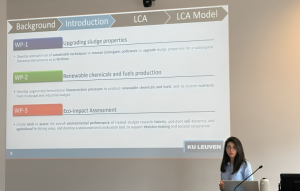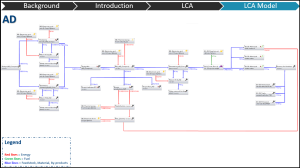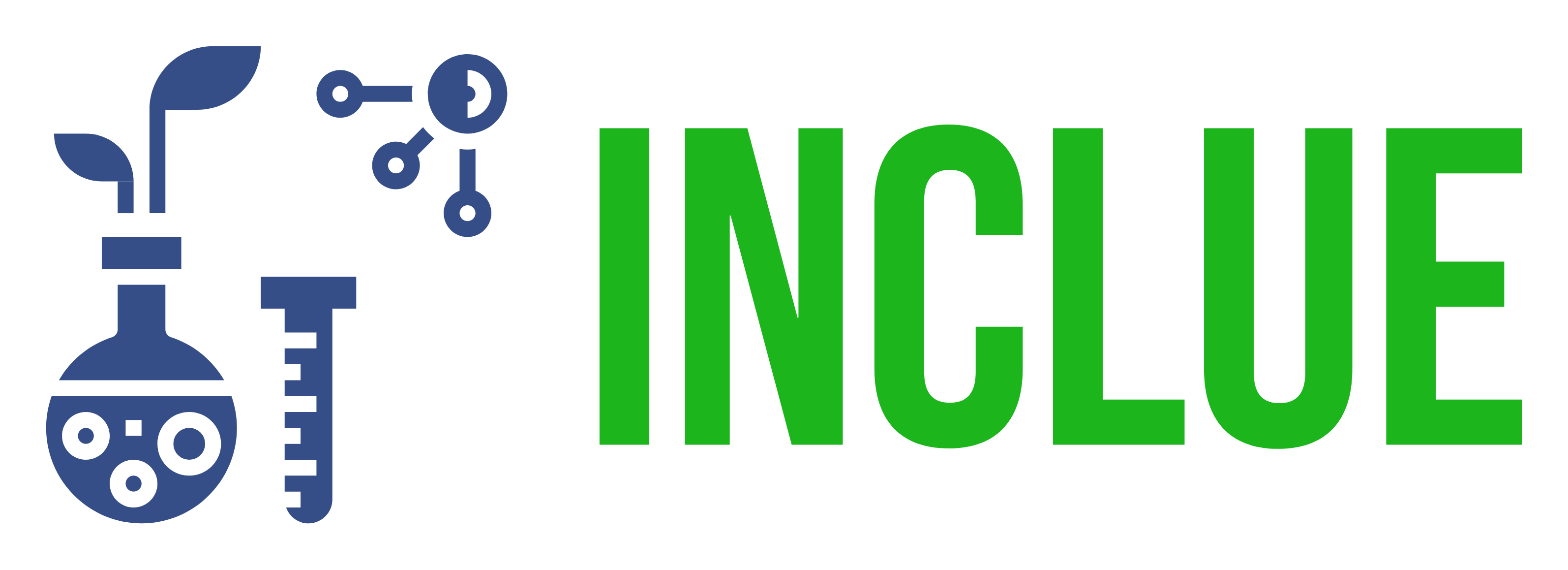
Pursuing a PhD is a journey filled with extremes—enriching, demanding, overwhelming, and rewarding—sometimes all in ONE single day!
In late June 2025, shortly after passing my 9-month progress meeting, I had the opportunity to present my research at the PETLab seminar, a monthly session at KU Leuven’s De Nayer campus that brings together professors, postdocs, and PhD researchers—mainly from chemical engineering, but open to researchers from all backgrounds. For PhD candidates like me, communicating research to an audience beyond supervisors and peers is a crucial skill, and I was particularly excited to introduce my work to those unfamiliar with Life Cycle Assessment (LCA) and demonstrate its significance in sustainable engineering.
As a doctoral candidate (DC8) within the INCLUE project, my research focuses on the socio-economic and policy-driven evaluation of innovative sludge treatment technologies. Using tools like GaBi software, I assess these technologies not just for their technical performance but also for their economic feasibility, policy alignment, and social acceptance. My goal? To bridge the gap between technical innovation and real-world implementation, ensuring that sustainable wastewater treatment (WWT) solutions are not just scientifically sound but also practical, economically (LCC) viable, and socially (SLCA) embraced.
In my presentation, I aimed to:
- The INCLUE project’s mission and goals
- Reframe the perception of sludge—not as waste, but as a valuable resource with potential for recovery.
- Present the sustainability assessment frameworks and LCA methodology based on ISO 14040 and 14044 standards.
- Modeling sludge treatment technologies—Presenting my LCA-based process frameworks and results, which aligned well with our theoretical assumptions.
What made this experience particularly valuable was the rewarding discussion that followed—engaging with researchers outside the circle of LCA specialists and with diverse backgrounds. This not only enhanced my ability to distill complex topics but also opened up constructive conversations and feedback that I wouldn’t have received otherwise.
Looking ahead, my next step is to develop comparative models that allow for more effective evaluation across various treatment technologies. These improved models will give us a more realistic and comprehensive understanding of how different approaches perform, ultimately helping us navigate the path toward a green transition on the EU horizon.
At the end of the day, research is about more than data. It’s about curiosity, persistence, and the joy of discovery. Whether it’s at a seminar, a conference, or in a published paper, sharing our work leads to progress. I’m grateful to contribute to this journey at KU Leuven, and I can’t wait to see where it leads next!


